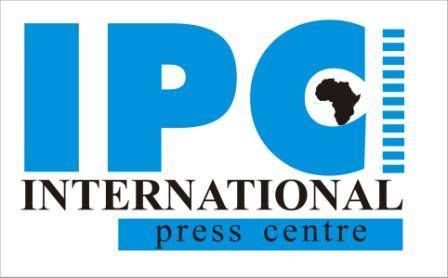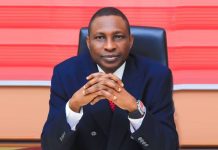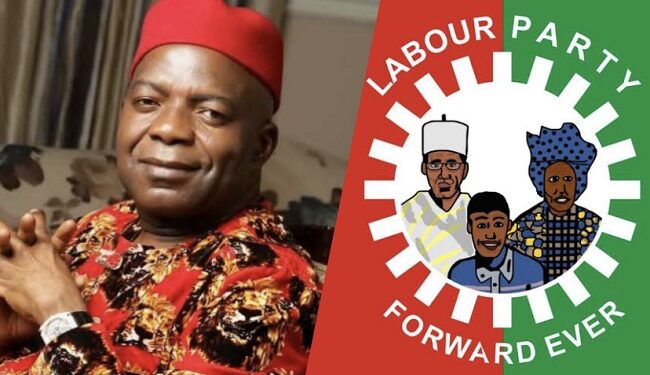By Chimezie Godfrey
As part of efforts to improving Nigeria’s democracy, the International Press Centre, IPC, with support from the European Union (EU) has trained bloggers and journalists of the Northern extraction on conflict-sensitive reporting of the forthcoming 2023 elections.
The engagement which was a one day skill-enhancing and capacity-building workshop for bloggers/online journalists on conflict sensitive reporting in the build-up to the 2023 general election was aimed at strengthening the media for fair, accurate, ethical and inclusive reporting of the electoral processes and elections and in particular, to mitigate perceived and anticipated issues of spread of hate speech online and other forms of non-conflict sensitive reporting.
The virtual workshop was particularly for those who will be involved and active in the coverage of the 2023 general elections and related political and electoral issues around FCT Abuja and across States of the North.
The Executive Director, IPC, Lanre Arogundade in his remark noted that that the capacity building session was the second in series of the program, adding that its aim was to strengthen the media to be able to mitigate the impact of hate speech especially as the country approaches the general elections.
Arogundade stressed the importance of the Nigerian Media Code of Election Coverage in assisting journalists to successfully cover campaigns and elections, among other mechanisms, while urging election reporters to acquaint themselves with the important document.
He said,” The Nigeria Media Code of Election Coverage is a very powerful tool to help journalists successfully and effectively cover campaigns and elections.”
He encouraged election reporters to be factually accurate in their reportage of election issues, and ensure that they have contact details of critical stakeholders, while urging political parties to respect the rights of journalists to cover elections,
Arogundade said it is the responsibility of journalists to project the voices of under represented groups, such as women and Persons Living With Disability (PWDs) candidates, while he also harped on the strict adherence of election reporters to the ethics of the profession.
According to him, it unethical for a journalist to collect bribe or demand to be paid money to do their work, as he cautioned that they should be careful in their relationship with politicians.
He urged every media platform to have anti-hate speech policy which should clearly define what is acceptable or not. He equally stressed that part of election reporters responsibilities is to give warning alert to the public.
“Our responsibility is to give warning alert to the public, sensitize security or law enforcement agencies on security alert.”
He added,”You must manage the information in our possession very well. So, we must protect our mobile phone and use all the security tips. When you are covering election ensure that you have quick contacts, incase you are exposed to threats. You should avoid being just because you want to get exclusive report.
“For security reasons, wherever you are going make sure you have local knowledge of of the environment. You need to check your health status before going to cover an election,”
The IPC Boss equally urged journalists to report any act of intimidation during their coverage of elections, adding that INEC accreditation is part of an election reporter’s safety tips,”If you do not have INEC accreditation do not go out because you may arrested by security officials. We equally go out with our official identity cards,” he stressed.
The President, Guild of Corporate Online Publishers (GOCOP), Mauren Chigbo pointed out nuggets for successful coverage of elections which include accuracy in information dissemination, paying attention to facts, and being diplomatic in the choice of words, among others, adding that the reporter’s job was to pass accurate information to the public.
“As a reporter, our job is to get it right and pass accurate information to the public. Do no harm by the choice of words used on those who won or those who lost. We have to be sensitive in the choice of words we use in reporting election issues, please do no harm in your choice of words.
“We should not over simplify the complexity of this election. Do not underestimate the complexity of this election. We can always emphasize on areas that unites us rather than the areas than divides us. We have to think about the fact that somebody is going to emerge looser and winner. Whatever we publish can escalate conflict or violence. So, if you are reporting do not over simplify the complexity of this election so that we can report to enhance the unity of the country,” she said.
She stressed that journalists should pay attention to facts and figures during elections, and should not publish election results before the electoral umpire to avoid conflict.
“To avoid conflict, we need to follow the straight and narrow way, by abiding by the code of election coverage,” she concluded.
The Executive Director, CITAD, Yunusa Zakaria Yau during his presentation on the topic, “Hate Speech in Election Reporting – Observation from the Field and Pitfalls to Avoid”, said many Nigerians rely on the online media for information and therefore that there role in information dissemination is very important.
According to him, they actually started monitoring hate speech since 2014, as at then it was not as an important issue as it is now as he urged that journalists should be able to identify hate speech when they see it.
Yau identified hate speech as any speech act that has the capacity to catalyze or amplify violence by one group against another given the circumstances in which it was made or disseminated.
According to him, hate speech can concretely manifest itself as insults for religions, discriminatory assertions against PLWDs, expression of contempt against people, among others.
He stressed the need for journalists to be able to differentiate between dangerous speech, hate speech and free speech, adding that dangerous speech has the capacity to catalyze or mobilize violence.
He said,”Usually when elections is around hate speech begins to rise and gradually reduce when we move away from elections.
“Politicians deploy hate speech to their advantage. Politicians and their supporter are usually not the processors of hate speech but it is the journalists who select the information they disseminate to the public. Hate Speech finds a lot of space in both conventional and social media.”
Yau stressed the need for a media practitioner to be able to identify hate speech, considering the fact that there is a very thin border between “Free Speech” and hate speech, adding that it is dangerous for a journalist not to have the capacity to identify the difference between the different types of speech.
He hinted that different actors use hate speech for different purposes which include the control of social media, and to achieve other aims. He therefore stressed that the concern should not be about making laws against hate speech but should be education and sensitization of the public.
“Our concern for hate speech must not engender other components of anti-freedom of speech. Let us focus on the dimension that I call dangerous speech. Subject all speech act to test and see whether it qualifies as hate speech or dangerous speech.
“There should be guide against the seductive appeal of more laws to deal with hate speech, because more laws will tend to criminalize hate speech. What we need to do is more of education and more sensitization to get people not to mobilize hate speech or dangerous speech. We as journalists should always respect our ethical standards,” he said.
Prof Rotimi Ayekanmi, the Chief Secretary to the Chairman of INEC, noted that the media is extremely important and a critical part of the group that the Commission invites in their meetings, adding that this has created a better understanding for the media to understand what the Commission has been doing.
“If you are outside INEC, you will not appreciate the gravity of what the Commission is dealing with. Between 2010 and 2022 we had over 50 unprovoked attacks which we lost lives and property. We have 11 attacks from Imo state alone, I don’t what we did to them.
“Fake news is a major problem that we face, for instance when we started the review of the PVCs, some people started spreading fake news and we were being attacked. That is why the publishers are very important and critical stakeholders in dousing tension in the country.
“Let us remove religious and ethnic leanings in our stories. INEC is not concerned region about religion and ethnicity in doing our job,” he said.
Presenting the paper on “Conflict Sensitive Reporting Skills and Methodologies, Dr Rukkayat Yusuf Ali stressed that the media has a critical role to play in entrenching democracy in the country.
She said the media will have to seat up to so as to ensure success and avoid conflicts as the elections are coming very soon.
“Our campaigns and elections are mostly associated with conflicts and violence. It is therefore part of the media responsibility to contain violence and conflicts in elections. The media have the responsibility to reduce this to the bestest minimum. If that is not done, the result will be negative and will have multiplier effect.
“Interestingly key political actors are not always directly affected by conflicts during political elections, but their followers and the youths that are mostly affected by violence that erupts during elections, that is why there is need for the media to reduce conflict to the bestest minimum during elections.
She disclosed that the skills needed in reporting conflict sensitive issues included, accuracy in truth seeking, objectivity, fairness, being professional and ethical, being mindful of the Nigerian Code of Election Coverage, and being technologically inclined among others.



